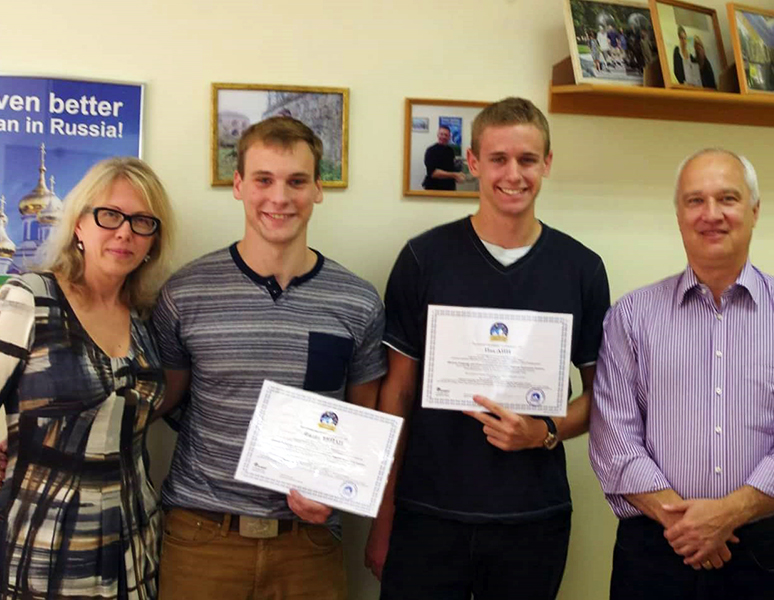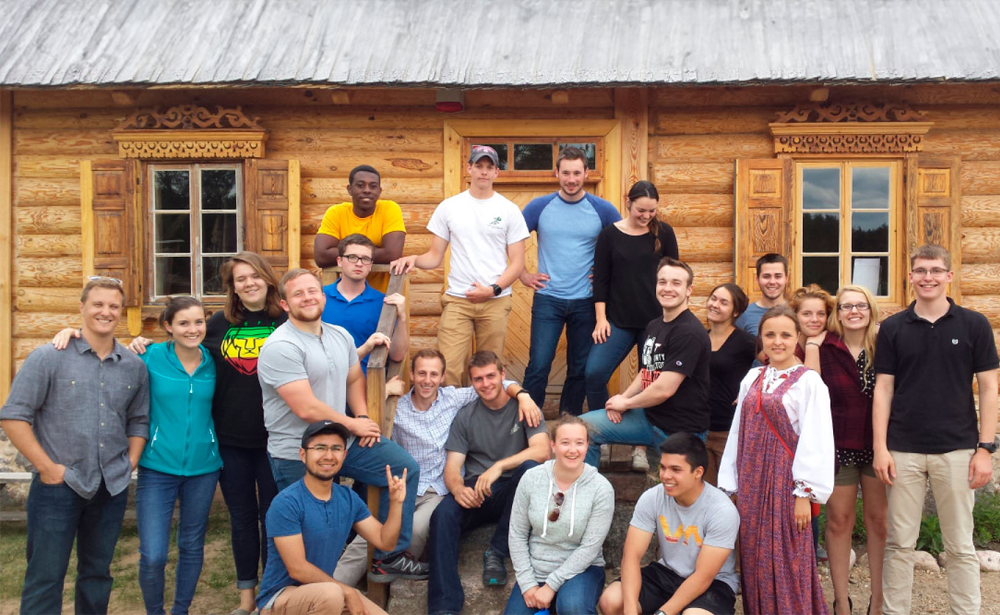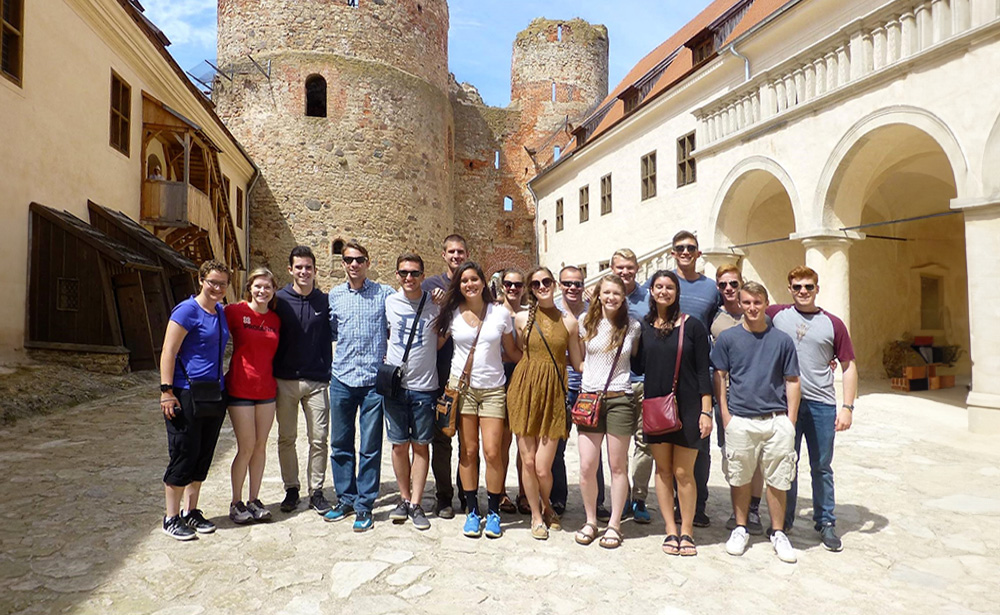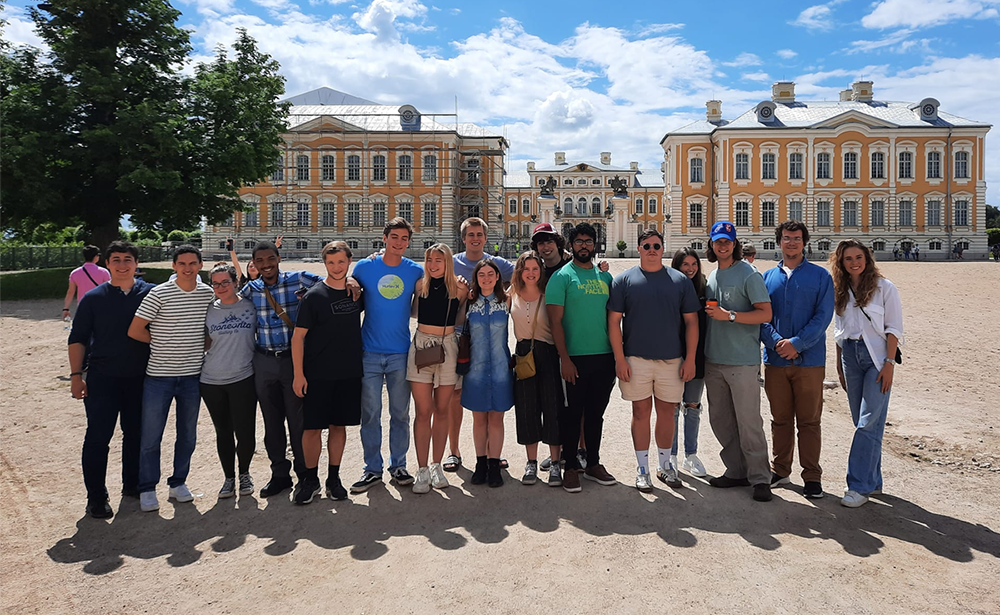Our Russian Language Teachers – Alyona Savelyeva
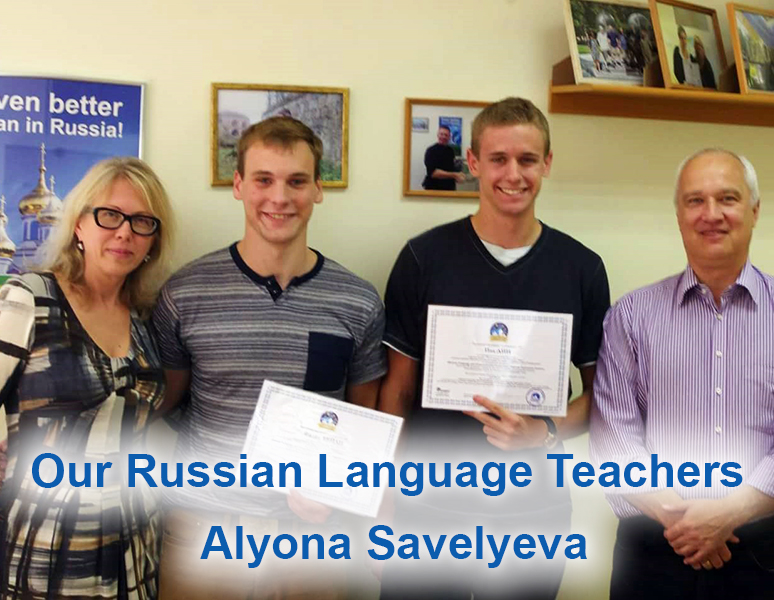
We would like to tell you about our Russian language teachers, therefore we start publishing articles about them. You will know where our teachers studied and what they do in the project Learn Russian in the EU.
In our today’s interview we have asked Alyona Savelyeva to tell us about herself and her job.
Hello! Could you please say a few words about what you like doing in your free time?
I do love reading. I try to read whenever I have some free time. My favourite reading is Russian classical literature, Chekhov. I also read British and American authors.
I do sport, go jogging, and do TRX three times a week. My lifetime ambition is to run a marathon, but I’m afraid I’m too lazy to get ready to it properly.
My dog is an important part of my life. He is a beagle, his name is Snoopy. The only problem I have with my dog – he hates running with me.
Where did you study?
I graduated Daugavpils University with the Master of Arts degree in linguistics. And I’m a qualified teacher of Russian language and literature and English language.
I try to regularly go on teacher development courses for Russian and English language teachers. For example, last year I spent two weeks in Florence doing TEFL English teacher course.
Where did you work before you joined Learn Russian in the EU project?
After the university I worked as a lecturer at the English language department of Daugavpils University for 7 years, after that I started teaching Business English at Riga International School of Economics and Business Administration.
How long have you been working with foreign students teaching them Russian?
I have been teaching Russian as a foreign language since 2009.
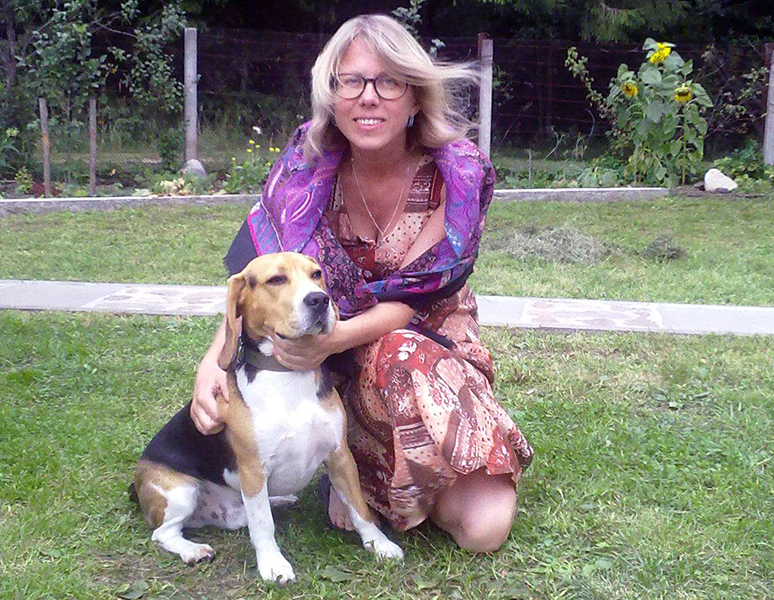
Are there any peculiarities of teaching Russian to foreign students?
There is a huge difference between teaching Russian to Russian natives and to those who study it as a foreign language. You should explain quite many things to foreign students, which Russian natives use instinctively. But it’s obvious, of course. In methodology we distinguish between teaching language to native speakers and to foreigners.
What challenges do foreign students face when they study Russian?
Beginners often find it difficult to get used to the Cyrillic alphabet and pronunciation of some Russian sounds. Most students think that Russian cases and verbs of motion with prefixes are really challenging.
What about the age of the students you work with?
I have experience of working with students of very different age, from 18 to 70, but the average age of our students is 20-25.
What programmes are you involved in? What programmes are most popular?
I work with the programme “Communication and Interactive Grammar”. This programme is really popular with our students, as majority of people who study a foreign language because they want to be able to communicate in it. The main goal of this programme is to equip students with knowledge and skills needed for successful communication.
A few words to our students?
There is a nice English saying – Practice is the best teacher. Don’t be lazy, don’t be afraid of challenges and you will make it!
Thank you!
In the future we would like to tell you about our other teachers. Follow the updates!
You may be interested
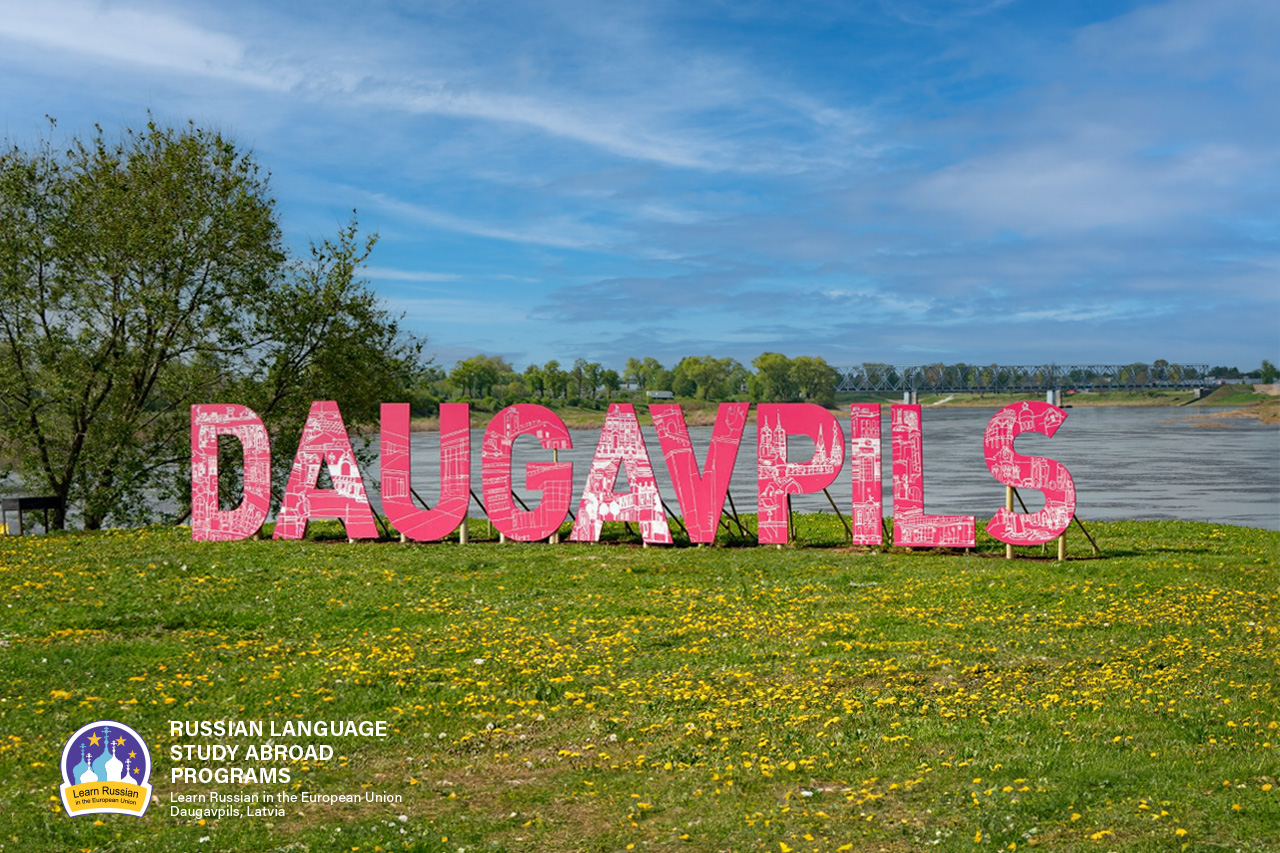
Why do people speak Russian in Daugavpils?
As it seems to us, Daugavpils is the best place to learn Russian now, because our city is situated in the EU and NATO, but at the same time 90% of the city’s population speak Russian at home.
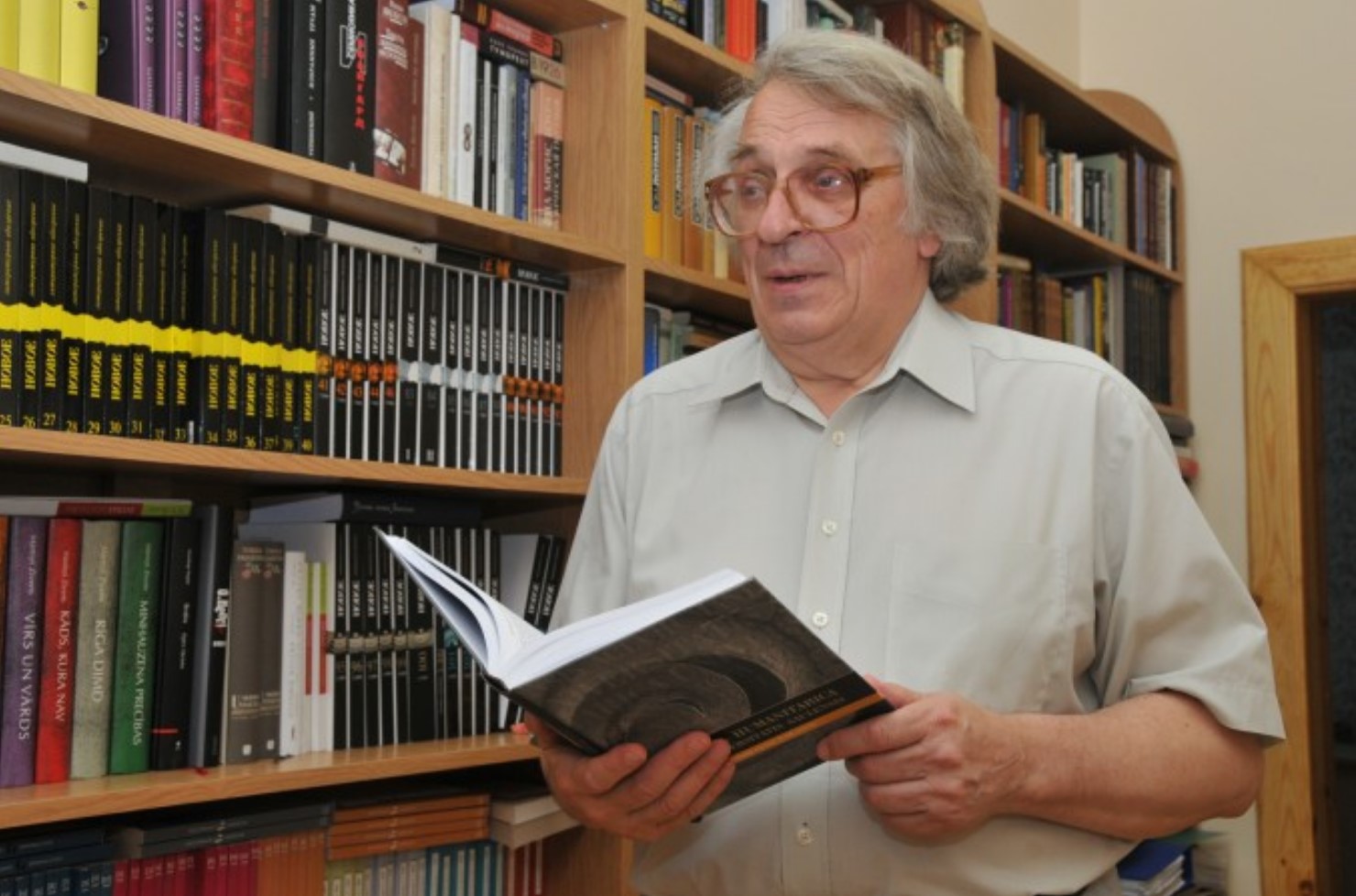
ЭТЮД О ДВИНСКЕ
Etude on Dvinsk by F.Fedorov
The Baltic region is one of the most catastrophe prone regions of the 2nd millennium, especially its second part; it is the centre of attraction of ‘geopolitical’ interests of the European world. Probably the most tragic fate has befallen to the eastern part of the present Latvia and its multi-titled town of Dinaburg – Dvinsk – Daugavpils. During its 730 years long history, the town went through five rather autonomous periods of development, five different lives (German, Polish, Russian, Latvian, Soviet), and at the beginning of the 1990s it entered into the 6th period.
The history of Dinaburg – Dvinsk – Daugavpils is the history of five attempts by the town to begin its life anew; and this is determined not only by the fact that the town was four times burned down and had to start life from scratch, but first and foremost because each of these periods was characterized by a total change of ethnos and the socio-cultural field.
The present article deals with the cultural space of the town in one of the most efficient periods of its development – from the 1860s till World War I.


